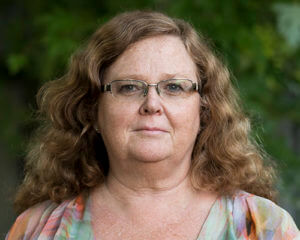Leonard
I was diagnosed with Lewy body dementia in 2016, when I was 69. I knew something was wrong, I just didn’t know what it was. Still, I didn’t expect the diagnosis.
In the beginning, there was a sense of isolation. Lewy body disease can be hard to diagnose, because Parkinson’s disease and Alzheimer’s disease cause similar symptoms. With this form of dementia comes rough nights and hallucinations. I know what a dream is, and what a hallucination is – and what I’m experiencing are not dreams, they are something else.
As things have progressed, my friends have been supportive. Friends are friends; they will try to ingratiate and make you feel better. They don’t know how, necessarily, but they do try to help. Though you understand what they are trying to do in being empathetic, somehow you have a sense that there’s no use in even trying to explain certain things, like how it’s not the same as when they “forget their keys” or something like that. No one’s really going to have the time.
My family has been supportive too, always asking if there’s anything they can do. One of the more humorous examples was from one of my adult children. The first thing he said was, “Dad, is this, like, contagious?” and I said, “I don’t think so”. I thought that was quite humorous and so did he, but both of us knew it was a real concern and he wanted to know. Particularly with regard to my wife, Naome, this was her work and her life on a daily, monthly basis. She’s not retired – she is a full-time caregiver to me plus she has a full-time job.
Facing stigma
In terms of stigma I have faced, initially I would say it hasn’t been a factor. I say that because my personality and philosophy can be sometimes amusing. My way of dismantling the condition is to dismantle the psychological structure. For a while, I didn’t face any stigma. I think people sincerely tried to treat me in a way they thought was appropriate given they didn’t know what was appropriate.
I think attitudes have changed but just marginally. For instance, I can go out in a public setting, and most people wouldn’t really know what dementia is, and many wouldn’t really be able to talk much about dementia. There is a tendency for people to wrap it all up under a single banner of Alzheimer’s rather than dementia, and I can tell you that Lewy body dementia is different than anything I thought dementia was about. Like most things in life, when you are trying to draw attention to something, it takes time and some dollars to bring attention to it.
Here are some of the things that happen to me, and maybe if you read them, you can get a better understanding.
- Hallucinations, which include: A girl from the 20s, serpentines and small wrap-arounds (small men wrapped in burlap like small Christmas trees) who sometimes look at my books. Others include insects and animals. I get a sense that there are others in my house. Maybe it’s a grown-up son, other family members or even strangers.
- Disorientation: I need a nightlight so I don’t get lost in my wife’s closet. I frequently walk around the house in the middle of the night with a flashlight.
- I’m less able to get things done quickly, like shopping for example.
- Reading a book is excruciating… in the centre of sentences, the words heat up and drip away.
- Simple household chores and jobs need a much greater degree of pre-thought and planning – mowing the lawn, painting the downstairs bedroom, repairing the deck…even changing light bulbs can be a challenge.
Some final advice. If you have dementia tell your stories. Tell others what it’s like. They need to hear your stories and hear your experience to understand. Your stories will help you come to terms with who you are now – more importantly, who you are becoming.
If you don’t have dementia, ask those around you who may, so they can tell you their stories. You will learn a lot.
Trust
I have dreamstreams in my life.
Right beside this dementia
It flows
But not a dream
Tracks right beside dreams
Like a rider
But it’s not a dream
It’s something else
I know how to spell
And I know how to forget
This is neither
It’s a close call
Almost a rub
And now I can’t trust.
– Leonard Howe
Comments
We may use your information in order to track your relationship with us and our site(s). We do NOT share your information with third parties.

Here are my tips to help you understand:
- Please be patient. From time to time, I will be talking and it’s true that I will forget what I’m talking about or forget key words or phrases that are critical to our conversation. At these times, I will need to ask you to remind me what the context of our conversation is.
- Especially with Lewy body dementia, there’s a fair amount of consistent sleep problems. Every evening I have hallucinations and they are very complicated and scary at times. This is something that my wife and I were unprepared for. Every time there’s a new symptom you have to figure out a way to face it, assess it, re-strategize and deal with it. I often feel fatigued. I need to nap, in order to respond to that, so it is something to deal with.
- The relationship between you and your caregiver can be complex, particularly if your caregiver is your wife or loved one, because those relationships are built over time. They are shifting and possibly changing continuously. For example, to the extent your relationship has always included the ability to talk, it has now become very difficult to talk and recall. And so, you are left with not much to contribute to what was very precious in terms of breakthrough conversations or the potential for those. It changes your relationship. And it’s kind of scary.
- Don’t be afraid if you can help it because it adds nothing. So, to the extent I can, I’m going to continue to live my life in ways that look like how I’ve lived before.
-
More Stories
-

Jane
2019
Ontario
-

Keith
2019
Ontario
-

Robin
2019
Ontario
-

Shelley
2018
Ontario

Kelly Cunningham 1833 days ago
Thank you Leonard SO much for sharing the details about Hallucinations/disorientation and Trust. My Mom was never officially diagnosed (but certainly not from me not trying to get help for a couple of of years). Anyway the important thing is, now she is safe and in Long Term Care. I have scoured books and resources looking for examples of what a person with Dementia is *actually experiencing* which you have spelled out clearly! THANK YOU SO MUCH! My Mom would roam around the house all night with her flashlight and complain about the *invisibles* taking her things, and said they came and went by a bus in the basement. Without Dementia patients sharing concrete examples of their experiences vs blanket statements about *feeling confused* or *seeing things* it's so hard to relate to what you are really going through. So thank you again Leonard! I hope you continue to share your life for others to learn and benefit from, and possibly get earlier diagnosis and treatment.
barbara 1834 days ago
Thank you Leonard for sharing your personal story...I am caretaker to my husband who is also 69...he diesnt have any if those symptoms, because i think it is Vascular Dementia. He still doesnt talk about his diagnosis although he is quite aware there are things he can no longer do.